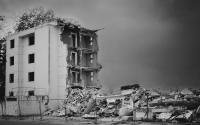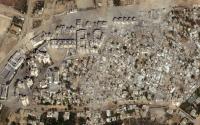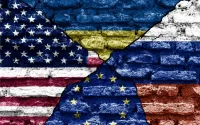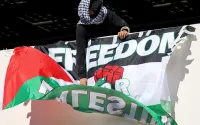17 June 2008
Despite the dispatch of United Nations peacekeepers to Darfur and the issuing of international arrest warrants for leaders of the genocide, the killing goes on. So does the burning of villages, the bombing of schools and the systematic rape of women and girls. And it will continue until the Security Council shows the will to stop it.
The Council needs to get more peacekeepers, helicopters and reconnaissance planes in the field, enforce the arrest warrants and increase diplomatic and financial pressure to get Sudan to stop obstructing the work of the peacekeepers. But the Council has shown little urgency in doing any of that.
Thwarted by Sudan and the United Nations' own bureaucratic rules, far less than half of an anticipated force of 26,000 international soldiers and police officers is now in Darfur. That is too small to protect the population, or even the peacekeepers themselves. An additional 100,000 people have been forced from their homes since the peacekeepers began arriving in January.
The Council (and separately the European Union) must ensure that Khartoum's leaders pay a price for their cruelty — through expanded visa and financial sanctions against those coordinating the genocide as well as an expanded arms embargo. The International Criminal Court should get strong backing from the Council when it presents further charges next month.
Responsibility for the Darfur horrors lies squarely with the government of Sudan. Its army, air force and intelligence agencies have directly participated in the attacks. Ministers have coordinated the genocidal campaign. Ahmad Harun, sought by the International Criminal Court for planning atrocities while the deputy interior minister, has been promoted to minister of humanitarian affairs. He used that position to block the delivery of aid to Darfur refugee camps and to thwart the effective deployment of United Nations peacekeepers.
But a minority of Council members, led by China, have let their economic interests — in Beijing's case substantial investments in Sudan's abundant oil supplies — trump their moral and legal responsibility to thwart genocide. Last week, China's president, Hu Jintao, used stronger-than-usual language to urge Khartoum to cooperate with United Nations peacekeepers and enforce a cease-fire in Darfur. If China is prepared to back up those words with a tougher line in the Security Council, it could make a huge difference.
The Bush administration has its heart in the right place on Darfur. Its special envoy, Richard Williamson, has been a strong advocate for action, and Washington has imposed stiff sanctions of its own. But what's needed is stronger action by the Council as a whole.
Darfur's plight is not yet hopeless, but without greater international commitment it may become so. As the criminal court's prosecutor told the Security Council on June 5, it takes a lot of planning and organization to commit massive crimes.
"But mostly," he said, "it requires that the rest of the world look away and do nothing."
http://www.nytimes.com/2008/06/17/opinion/17tue1.html?_r=1&ref=opinion&oref=slogin






